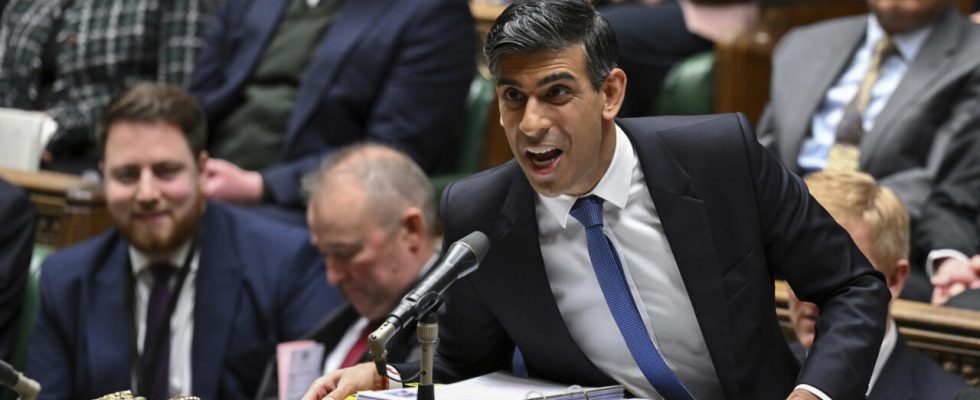Overcoming an attempted rebellion in his majority, British Conservative Prime Minister Rishi Sunak obtained this Wednesday, January 17, the green light from MPs for his bill aimed at outsourcing the asylum application system to Rwanda.
Published on : Modified :
4 mins
After two days of high tension at the Palace of Westminster with heated debates, negotiations behind closed doors and resounding resignations, the dissidents returned to the ranks. The text providing for the relocation of the asylum application system to Rwanda was approved on third reading in the House of Commons with 320 votes for and 276 against.
A relief for Rishi Sunak. Well ahead in the polls by Labor at the start of the electoral year, the Prime Minister has put all his weight into the balance to bring about this project supposed to show his firmness on a major concern of his base, but which will have exposed the divisions of its majority, the moderates fearing an attack on international law and the most right-wing wanting to go further.
This text aims to respond to the objections of the British Supreme Court, who deemed the project illegal in its previous version out of fear in particular for the safety of asylum seekers sent to Rwanda. According to the project, the latter, wherever they come from, would have their file examined in Rwanda and would then not be able to return to the United Kingdom under any circumstances, being able to obtain asylum only in the African country if successful.
During its examination, dozens of conservative deputies supported, in vain, amendments aimed at toughening the text, in particular attempting to limit the right of migrants to appeal their expulsion. Tension also rose a notch after the resignation on Tuesday of two vice-presidents of the Conservative Party, supporters of a harder line, who received the support of former Prime Minister Boris Johnson.
New treaty
Announced in April 2022 by the latter, this project aimed to discourage the influx of migrants in small boats across the Channel: almost 30,000 last year after a record in 2022 (45,000). But the text has so far never been implemented. A first plane was blocked in extremis by a decision of the European justice, then the British justice had, up to the Supreme Court, declared the project illegal in its initial version.
To try to save its text, strongly criticized by humanitarian associations, the government signed a new treaty with Rwanda. It is backed by this new bill which defines Rwanda as a safe third country and prevents the return of migrants to their countries of origin. He also proposes not to apply certain provisions of British human rights law to evictions, to limit legal recourse.
The UN refugee agency (UNHCR) said on Wednesday that the latest version of the draft was “not compatible” with international law.
The bill will now have to be approved by unelected members of the House of Lords, who could well amend it. And if it is adopted in time before the legislative elections, scheduled for the fall, Labor, led by Keir Starmer, has promised to repeal it if it comes to power after fourteen years in opposition.
“We can send the money back,” says Kagame
Traveling to the World Economic Forum in Davos, Switzerland, Rwandan President Paul Kagame commented on his country’s bilateral agreement with the United Kingdom on Wednesday. A controversial agreement which provides for the sending to Kigali of migrants who arrived illegally on British territory, denounced by numerous human rights organizations and by the United Nations High Commissioner for Refugees. Questioned on the fly by BBC journalists, the head of state notably returned to the financial aspect of the agreement.
If the asylum seekers do not come, “ we can return the money “, he said. In total, the UK government announced last December that it had already paid Kigali almost £240 million, £140 million in 2022 and a further £100 million last year. A new payment of 50 million pounds is also planned in 2024. An investment intended, according to the British authorities, to cover the initial costs of settling migrants and to the economic development of Rwanda, specifies our correspondent in Kigali, Lucie Mouillaud.
Also asked about the legal obstacles to the implementation of the agreement, the head of state replied that it was not his country’s problem, but that of the United Kingdom.
(With AFP)

